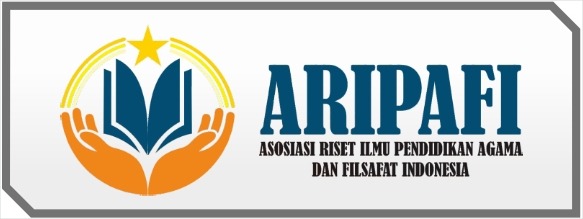Educating for Tolerance: Multicultural Approaches in Islamic Religious Education
DOI:
https://doi.org/10.61194/ijis.v2i2.602Keywords:
Multicultural Islamic Education, Inclusive Pedagogy, Tolerance In Schools, Religious Education, Curriculum Development, Educational Policy, Cultural DiversityAbstract
This narrative review explores the integration of multicultural values within Islamic education in public schools, focusing on how inclusive practices contribute to tolerance and social harmony. The study aims to analyze existing literature on the topic and evaluate the effectiveness of pedagogical and institutional strategies. A systematic search was conducted across Scopus, Web of Science, ERIC, and Google Scholar using relevant keywords such as "multicultural Islamic education" and "inclusivity in Islamic education." Studies were selected based on relevance, quality, and empirical depth. The results highlight four main themes: curriculum integration, the roles of teachers and leadership, effective teaching strategies, and barriers to implementation. Schools that integrate inclusive values into Islamic education foster students' empathy, tolerance, and interfaith understanding. Teachers and school leaders are key facilitators, while project-based learning and interactive media prove effective in promoting multicultural awareness. However, systemic challenges such as policy gaps, limited teacher training, and community resistance persist. Local contexts significantly influence implementation, indicating a need for adaptable and context-sensitive strategies. The findings suggest that strengthening teacher training, aligning national and local policies, and involving community stakeholders are critical for advancing multicultural Islamic education. These insights offer valuable guidance for future research and educational reforms aimed at building inclusive, pluralistic societies through Islamic schooling.
References
Afriyanto, I., & Anandari, R. (2024). Reforming Islamic education curricula to promote tolerance and interfaith understanding. Journal of Multicultural Education, 18(1), 45–60.
Amatullah, T. (2024). Addressing identity and inclusion through Islamic education in Western contexts. International Journal of Islamic Studies, 22(2), 112–128.
Arifin, Z., Suryadi, A., & Widodo, H. (2023). Enhancing teacher competencies in multicultural pedagogy through clinical supervision. Education and Society, 31(3), 215–230.
Azkiya, F., Ramli, M., & Wahyuni, S. (2025). Institutional readiness for multicultural Islamic education: A comparative case study. International Journal of Comparative Education, 17(1), 14–32.
Bagley, C., & Al-Refai, M. (2017). Inclusion and exclusion: Intercultural education and Muslim students in the UK. Race Ethnicity and Education, 20(4), 450–465. https://doi.org/10.1080/13613324.2016.1248833 DOI: https://doi.org/10.1080/13613324.2016.1248833
Burga, S., & Damopolii, I. (2022). The role of policy in supporting religious and cultural diversity in Indonesian schools. Indonesian Journal of Educational Policy, 10(1), 22–36.
Hamdan, A., Zubaidi, S., & Pratama, A. (2022). Problem-based learning for promoting inclusive Islamic education. Journal of Educational Research and Innovation, 6(2), 101–117.
Harits, M., Sulaiman, M., & Najib, H. (2016). Multicultural values in Islamic public schools in Indonesia. Indonesian Journal of Islamic Education, 4(2), 93–108.
Ma’rifah, S., & Sibawaihi, A. (2023). Integrating multicultural values into Islamic school management: The case of Sekolah Tumbuh. Journal of Islamic Educational Studies, 12(4), 278–293.
Malla, A. R., Nasution, S., & Ahmad, T. (2021). Promoting religious tolerance through animated learning media in conflict-prone areas. Journal of Peace Education and Social Justice, 9(1), 39–55.
Marzuki, A., Yuliana, S., & Hanifah, M. (2020). Rethinking pesantren education: Multicultural practices and barriers. Indonesian Journal of Islamic Education, 8(1), 56–74.
Mashuri, A., Fauzan, R., & Nugroho, D. (2024). Negotiating Islamic identity and cultural pluralism in Indonesian education. Cultural and Religious Education Review, 11(1), 65–80.
Mohammad, W. (2023). The role of AI Waifu characters in supporting Weaboos with post-traumatic relationship syndrome (PTRS). Sinergi International Journal of Education, 1(2), 77–96.
Muhajir, A., Latifah, N., & Siregar, D. (2020). Curriculum reform and inclusive Islamic education in pesantren. Journal of Islamic Pedagogy, 5(3), 144–159.
OK, S., Prasetyo, A., & Widyaningsih, D. (2023). Project-based learning and interfaith collaboration in Islamic schools. Journal of Education and Human Values, 13(2), 98–112.
Omar, M., Yilmaz, H., & Aydin, T. (2014). Teaching Islam in contemporary Turkey: A case for contextual pedagogy. Turkish Journal of Education and Culture, 7(3), 123–137.
Raihani. (2017). Education for multicultural citizens in Indonesia: Policies and practices. Compare: A Journal of Comparative and International Education, 47(1), 38–55. https://doi.org/10.1080/03057925.2016.1134957
R'boul, H. (2021). Teaching democratic values through Islamic education in European Muslim schools. Intercultural Education, 32(5), 551–567. https://doi.org/10.1080/14675986.2021.1938752
Rissanen, I. (2012). Teaching Islamic education in Finnish schools: A case of dialogical pedagogy. British Journal of Religious Education, 34(3), 225–239. https://doi.org/10.1080/01416200.2012.687363
Saihu, M., Wijayanti, N., & Kurniawan, F. (2022). Character education for religious moderation in urban Islamic schools. Jurnal Pendidikan Karakter, 12(1), 45–59.
Takunas, A., Rahayu, F., & Wibowo, S. (2024). School leadership and inclusive educational policies: Evidence from Islamic public schools in Java. Educational Management Perspectives, 14(1), 88–103.
Tirnaz, R., & Moghaddam, R. (2023). Cultural resistance to educational reform in conservative Muslim communities. International Journal of Islamic Thought and Reform, 9(2), 123–138.






